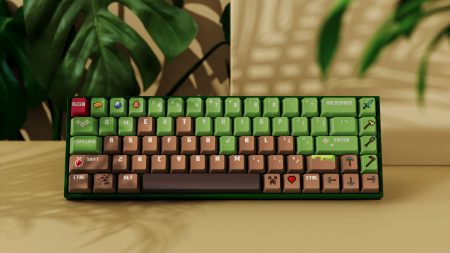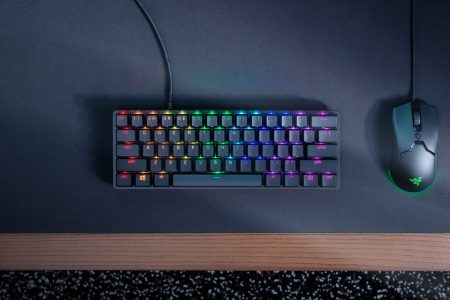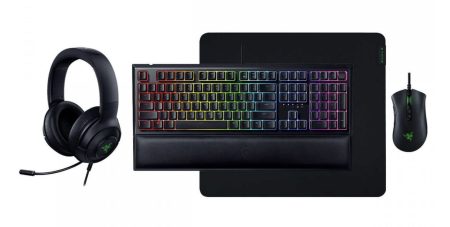The Benefits of Lubricating Your Keyboard
When it comes to lubing your mechanical keyboard, there are a few top contenders. Experts highly recommend Tribosys 3204 and Krytox GPL 205 Grade 0 for their smoothness and durability. These lubes enhance the typing feel and reduce friction, resulting in a more enjoyable keyboard experience.
In this section, I will explain lubrication’s crucial role in optimizing keyboard performance and highlight its many advantages.
- Enhanced Typing Experience: Properly lubricated switches provide satisfying tactile feedback while typing or gaming, making for smoother and more precise keystrokes.
- Reduced Friction: Lubrication minimizes friction between keycaps and stabilizers, extending the lifespan of your keyboard by preventing premature wear on switch components.
- Quieter Operation: Lubricants help dampen noise produced by keycap movement when pressed down or released quickly, making for a quieter overall experience during intense gaming sessions or late-night work.
- Improved Durability: By reducing friction within the switch mechanism, proper lubrication helps prevent damage caused by excessive force exerted on individual keys over time.
In conclusion, regular maintenance through proper lubrication enhances the overall typing experience and preserves the longevity of your beloved mechanical keyboard.
Choosing the Perfect Lubricant for Your Keyboard
Selecting the best lubricant is crucial for lubing your keyboard for optimal performance. As an expert in keyboard maintenance, I will guide you through choosing the most effective lubricant based on your needs.
- Consider Your Keyboard Type:
- Mechanical Keyboards: Using a lube specifically designed for switches is essential to ensure smooth keystrokes and reduce friction between key components.
- Membrane Keyboards: External lubing may not be necessary for membrane keyboards as they come pre-lubricated from the factory due to their different internal structure.
- Understand Different Types of Lubricants:
- Thin Lubricants: These low-viscosity lubes are perfect for reducing switch wobble and stabilizer rattle without affecting typing feel.
- Thick Lubricants: Higher viscosity lubes enhance smoothness during keystrokes and provide better protection against wear over time.
- Explore Popular Brands:
- Tribosys 3204/3203: One of the best lubes for tactile switches among enthusiasts due to its balanced consistency.
- Krytox GPL 205g0/105/106: Highly regarded by mechanical keyboard enthusiasts for its excellent performance on linear switches.
- Take Personal Preferences into Account:
- Typing Feel: Choose a lube that aligns with your preference, whether you prefer a smoother typing experience or more tactile feedback from your switches.
- Sound Dampening: Certain lubes can help reduce the noise of keypresses if you prefer a quieter typing experience.
- Seek Recommendations:
- Online Communities: Engage with keyboard enthusiasts on forums or social media platforms to gather insights and recommendations tailored to your needs.
- Product Reviews: Read reviews from trusted sources to understand other users’ experiences with different lubricants.
Choosing the right lubricant can significantly enhance your typing experience and prolong the lifespan of your keyboard. In our next section, I will provide a step-by-step guide on how to apply lubricant to achieve optimal performance correctly. Stay tuned!
How to Lube Your Keyboard for Optimal Performance
As a professional gaming PC player, I know firsthand the importance of having a keyboard that performs at its best. One way to ensure optimal performance is by lubricating your keyboard. In this section, I will provide an expert guide on looting your keyboard for the best results.
- Gather the necessary tools: Before you begin the lubing process, ensure you have all the necessary tools. This includes a suitable lubricant for keyboards (more on that in the previous section), a small brush or applicator, and some cleaning wipes.
- Prepare your workspace: Find a clean and well-lit area where you can work comfortably on your keyboard. It’s important to have enough space to maneuver without distractions or obstructions.
- Disconnect and clean your keyboard: Start by disconnecting your keyboard from your computer or device. This will prevent any accidental keystrokes during the lubing process. Use cleaning wipes to gently remove any dust or debris from the surface of your keys.
- Apply lube to stabilizers: Stabilizers are essential to mechanical keyboards as they help stabilize larger keys like the spacebar and shift keys. Apply a small amount of lube directly onto each stabilizer wire using an applicator brush or similar tool.
- Lubricate switch springs: Switch springs provide tactile feedback while typing on mechanical keyboards. To enhance their smoothness and reduce friction, apply a thin layer of lube along each spring using an applicator brush.
- Lubricate switch housing: The switch housing is where the keycap sits atop each individual switch mechanism within the keyboard assembly. To improve overall smoothness and reduce noise levels during typing sessions, lubricate inside each switch housing with just enough lube so it spreads evenly across all internal components. Avoid applying excessive amounts as it may lead to unwanted stickiness or malfunction.
- Reassemble and test: Carefully reassemble your keyboard once you have lubed all the necessary components. Please ensure each keycap is properly aligned and seated on its respective switch. Reconnect your keyboard to your computer or device and test it to ensure a smooth and responsive typing experience.
4 Common Mistakes to Avoid When Lubricating Your Keyboard
Lubricating your keyboard is essential for maintaining its performance and longevity. However, it’s crucial to avoid common mistakes that can compromise the effectiveness of the lubrication process. Here are some key tips to ensure you’re properly lubricating your keyboard:
- Selecting the Right Lube: Choosing the best lube for your specific mechanical keyboard switches is vital. Different switches require different viscosities and consistencies in their lubes, so be sure to use a qualifying product that matches your keyboard’s specifications.
- Applying the Correct Amount: Achieving the perfect balance when applying lube is crucial for optimal performance. Using too much or too little can affect smoothness and protection, so apply just enough to benefit from its features without overdoing it.
- Don’t Forget Stabilizers: Neglecting stabilizers during the lubrication process can lead to uneven keystrokes and reduced typing accuracy, so be sure to dedicate time to lubing them.
- Allow Ample Drying Time: After applying lube, give it enough time to dry before reassembling your keyboard fully in order not only to preserve but also enhance its smoothness without causing any damage internally or externally.
Product Recommendations: Best Lubricants for Keyboards
Selecting the correct lubricant is crucial for lubing your mechanical keyboard for optimal performance. As a dedicated enthusiast and professional PC gamer, I have personally tested various lubes on different types of keyboards to determine the best ones that deliver exceptional results.
- Tribosys 3204: This lube is highly regarded among keyboard enthusiasts for its perfect balance between smoothness and tactility, making it suitable for linear and tactile switches. Its medium viscosity provides just the right amount of lube without compromising key response time.
- Krytox GPL 205g0: Specifically designed for stabilizers, this lube has a thick consistency that effectively reduces rattle and ensures consistent stabilization across all keys.
- Super Lube Synthetic Grease: Ideal for heavy-duty lubing or stiffer switches like clicky switches, this high-viscosity grease allows for smoother keystrokes while preserving switch integrity.
- Christo-Lube MCG-111: A standout performer in external stabilizer lubing or reapplying lube on existing stabilizers with long-lasting effectiveness even under heavy usage conditions.
- Finish Line Teflon Bike Chain Lube: Despite not being originally created for keyboards, this product has gained popularity among mechanical keyboard enthusiasts due to its low friction coefficient and excellent corrosion resistance features.
Please note that these recommendations are based on personal experience and feedback from other users. It’s important to conduct your own research and consider the specific needs of your keyboard before making a purchase decision.













